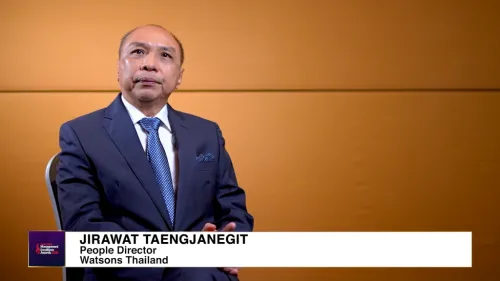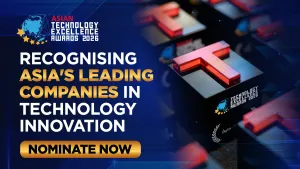
Why Singapore’s 3G phaseout is a double-edged sword
Singapore will shut down its 3G services by 31 July 2024.
Singapore’s ambition to become a smart nation is a step closer with its planned phaseout of 3G services, but the move risks widening the country’s digital divide, according to Abhishek Srivastava, principal at Arthur D. Little – Southeast Asia.
In an interview with Singapore Business Review, Srivastava underscored that 3G’s exit will require customers and businesses to upgrade to new 4G or 5G-compatible devices.
Although there are less than 103,000 subscribers (less than 1% of the total) that use 3G-only devices in Singapore as of June this year, he said the shift can be a struggle. “Lower-income households may struggle to afford new devices compatible with 4G or 5G networks, potentially limiting their access to essential online services,” he said.
Srivastava said it is undeniable that such an upgrade “may not be financially feasible for everyone and could incur further costs and inconvenience to both customers and businesses alike, more so for businesses which require ample planning to ensure continuity of their services like IoT (Internet of Things) services that use 3G.”
Along this line, he said 3G’s exit will not only affect mobile phones but also affect several industries from healthcare to retail.
“In the realm of Internet of Things, many devices like smart meters and GPS trackers often run on 3G networks. These devices will either need software upgrades or outright replacement to be compatible with 4G or 5G networks,” he said.
“Financial transaction systems, including older ATMs and point-of-sale (POS) terminals that rely on 3G for secure data transfer, will also need to be modernised. The medical field will feel the effects as well; remote patient monitoring devices that use 3G networks to transmit data back to healthcare providers will need to be updated to ensure continuous and reliable service. Similarly, cars that feature 3G-based communication systems for telematics, security systems such as surveillance cameras will require updates to function on newer networks,” he added.
The other edge
Whilst the retirement of 3G poses challenges for businesses, Srivastava underscored that the phaseout has its benefits. For one, 3G’s exit will expedite the adoption of 5G in Singapore.
“A robust 5G infrastructure can support tech innovation, attract foreign investment, and align with environmental sustainability through more energy-efficient networks,” Srivastava.
According to Sai Tunuguntla, partner and managing director at AlixPartners, 3G services in Singapore are provided on the 2100 MHz band.
“Should this band be refarmed for 5G, the 5G signal will become more available and the 5G network will also have higher capacity. Both these improvements will help accelerate the 5G adoption,” Tunuguntla said.
Srivastava, for his part, added that the 3G exit will accelerate the adoption of 5G technologies in Singapore in three ways.
“First, the freed-up spectrum can be repurposed for 5G, enhancing network efficiency and capacity. Second, resources previously spent on 3G maintenance can be redirected to 5G infrastructure and services. Third, as customers upgrade from 3G devices, telcos will have an opportunity to market 5G-compatible options, further encouraging adoption,” he said.
For customers, 3G phaseout entails “faster internet speeds and more reliable service on newer network technologies along with enhanced security features that often accompany these newer networks.”
M1, which is amongst Singapore’s top leading telco players, said their customers can also enjoy “new features and applications that require higher bandwidth and reliability, such as video streaming, cloud gaming, virtual reality (VR) and augmented reality (AR)” once 3G retires.
M1’s enterprise customers, meanwhile, can “take advantage of 5G capabilities to create new use cases to drive operational efficiencies and improve overall business performance,” said its spokesperson.
Srivastava echoed this, saying 5G will enable breakthroughs “in the form of newer use cases such as smart cities to IoT on 5G and AR.”
Telco players such as M1 will also benefit from the 3G phase out as it entails operational cost savings.
“By reallocating financial and human resources from maintaining an older network to enhancing 4G and deploying 5G, telcos can improve service quality and stay competitive. The freed-up spectrum can also be used more efficiently, offering higher data speeds,” Srivastava said.
Tunuguntla underscored that the benefits of 3G’s exit for industry players, consumers, and Singapore as a whole “outweigh” its drawbacks.
“There are proven cost reductions and customer experience improvements coming from retiring 3G networks,” Tunuguntla said.
The AlixPartners expert said the 3G exit will also reduce the number of mobile technologies in use, from 3G+4G+5G to 4G+5G, which then reduces operational costs and complexity.
Not a choice, but a necessity.
Srivastava and M1’s spokesperson both underscored that retirement of 3G services is needed in a mature telco market like Singapore.
“When the 3G networks retire, more spectrum can be released for investment in 5G to provide a better experience for users and support enterprises undergoing digital transformation,” the M1 spokesperson told the Singapore Business Review.
Srivastava, for his part, said: “It is about cost savings, spectrum efficiency and fueling innovation. Eliminating 3G cuts down on operational and maintenance costs and lets telcos focus on enhancing newer networks. Newer 4G and 5G networks use the same spectrum more efficiently, allowing faster data transmission and better service quality to customers.”



















 Advertise
Advertise








